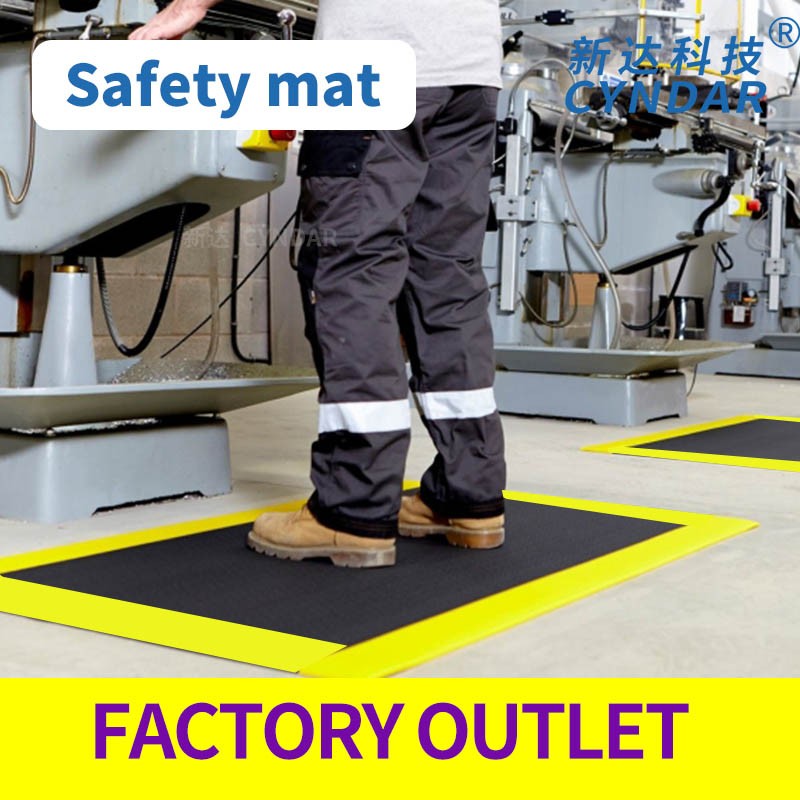Industrial Safety Mat Application Guide (with Case Studies)
I. Core Installation Process
1. Preliminary Measurement and Customization
• The measurement area must include the equipment danger radius range. Single pieces larger than 2000*1000mm need to be spliced5
• Case: A certain automobile welding workshop needs to protect the operation area of 6 robots. By customizing 3 pieces of Mat to cover the 15㎡ danger area3
2. Accessories Inspection and Laying
• Acceptance must include: main Mat, edge aluminum strip (including 50mm edge margin), explosion-proof signal cable, safety relay1
• Case: Dongguan injection molding workshop floor is seriously oily. During installation, PVC bottom plate oil separator is added to achieve stable operation with anti-slip edge pressing4
II. Key Usage Specifications
1. Environmental Adaptation Solution
• Acid and alkaline environment: wipe with neutral detergent every month to avoid corrosion of rubber layer
• Case: Qingdao Port Machinery Maintenance Area adopts double-layer Mat structure, bottom layer impact-resistant rubber + surface layer wear-resistant PVC to cope with heavy equipment crushing
2. Intelligent linkage configuration
• When integrated with the PLC system, a 0.1 second delay trigger must be set to prevent accidental shutdown
• Case: In a smart warehouse AGV channel in Suzhou, the Mat is linked with the dispatching system to improve the efficiency of human-vehicle diversion by 40%
III. Typical application scenarios
1. Protection of high-risk equipment
• Stamping machine protection: After installation, the annual work-related accidents of a household appliance company decreased by 92%
• Pipe bending machine linkage: The shutdown response time of a pipe factory in Zhejiang was <30ms, avoiding 3 robot arm injuries
2. Human-machine collaboration scenarios
• Automobile assembly line: The workstation Mat is linked with the electronic fence, and an immediate sound and light alarm will be triggered when a person crosses the boundary
• Case: In a gearbox factory in Changchun, safety Mat + intelligent tooling system improves production efficiency by 25%
IV. Maintenance optimization strategy
Three-level detection mechanism:
Daily inspection: cleaning of surface foreign matter (5 minutes)
Weekly inspection: torque test of edge clamp bolts (standard 25N·m)
Monthly inspection: signal loop impedance detection (needs <2Ω)
Life management:
Rubber material replacement cycle: 2 years in heavy-duty environment/5 years in normal environment
Case: Shenzhen 3C electronics factory establishes electronic Mat files to achieve accurate replacement of 95% spare parts
This guide integrates 20+ industry practice data, and can reduce 90% of mechanical injury risks through standardized installation processes and scenario-based solutions. In actual application, it is necessary to select a protection plan based on specific working conditions. It is recommended to contact professional manufacturers for on-site surveys



